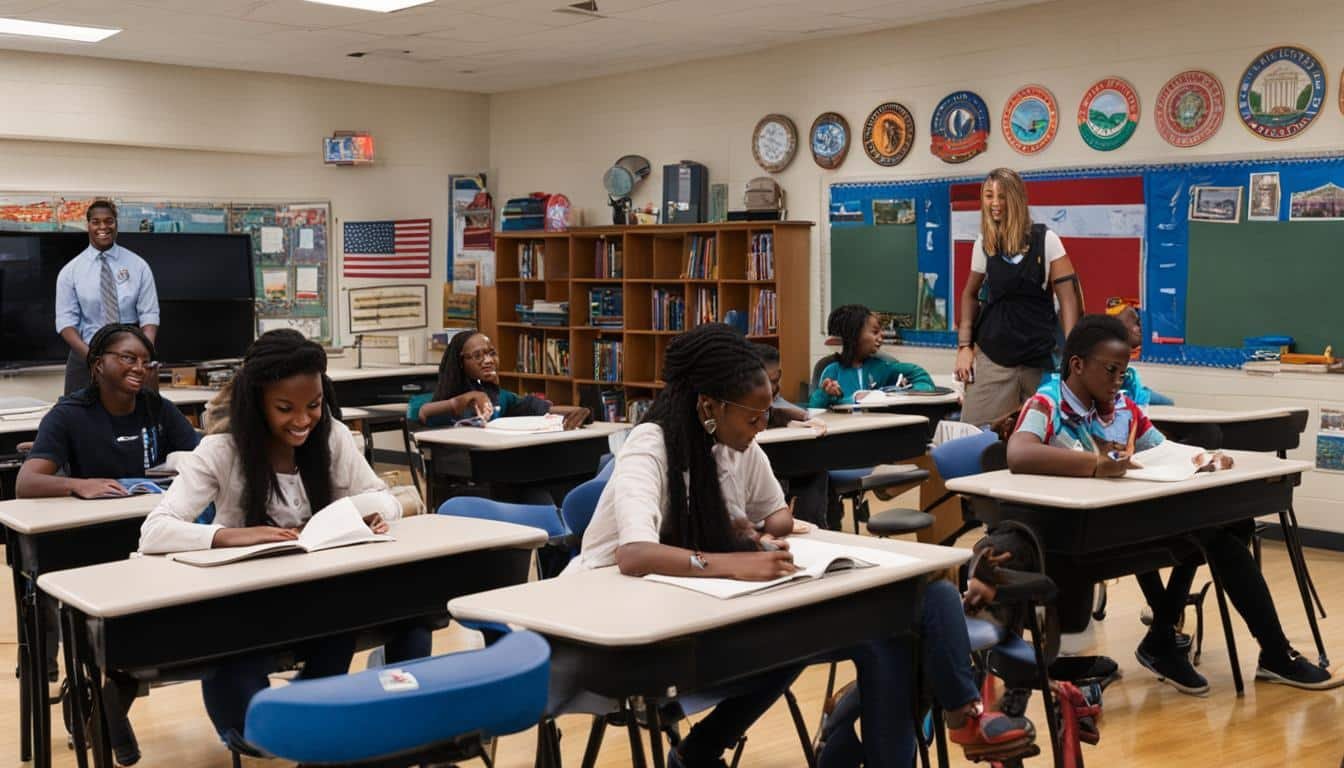The rights of students in special education are protected under various federal and state laws designed to ensure that children with disabilities receive appropriate education and support. Understanding these rights is essential for parents, educators, and students themselves to advocate effectively and ensure equitable access to education. This article will provide an overview of the key legal rights of students in special education, explain the laws that protect these rights, and highlight how these laws are implemented in practice.
Key Takeaway
Students in special education have legal rights that ensure they receive a Free Appropriate Public Education, are included in the Least Restrictive Environment, and have access to an Individualized Education Program. Parents and educators must be knowledgeable and proactive to uphold these rights and foster an inclusive learning environment.
Also Read: How To Choose The Right Education Testing Service For Your Academic Needs?
Individuals with Disabilities Education Act (IDEA)
The IDEA is the primary federal law that governs how states and public agencies provide early intervention, special education, and related services to children with disabilities. The main objectives of IDEA are to ensure that students with disabilities have access to a Free Appropriate Public Education (FAPE) that is tailored to their individual needs.
Also Read: How Education Equality Can Break The Cycle Of Inequality?
- A comprehensive evaluation to determine their eligibility for special education services.
- An Individualized Education Program (IEP) that outlines specific goals, accommodations, modifications, and support services.
- Education in the Least Restrictive Environment (LRE), meaning that students should be educated alongside their non-disabled peers as much as possible.
- Procedural safeguards, including the right to participate in meetings, access educational records, and resolve disputes through mediation or due process.
Also Read: How To Choose The Right Study Abroad Program For Your Career Goals?
Section 504 of the Rehabilitation Act of 1973
Section 504 is a civil rights law that prohibits discrimination against individuals with disabilities. It applies to any program or activity receiving federal financial assistance, including public schools. Under Section 504, students with disabilities are entitled to reasonable accommodations that enable them to participate fully in school activities and programs.
Also Read: Why Online University Courses Are A Great Option For Working Professionals?
Students protected under Section 504 might have a 504 Plan, which provides specific accommodations such as extended time on tests, preferential seating, or modified assignments. Unlike IDEA, Section 504 does not require an IEP but still mandates equal access to education.
Also Read: How Is Education Technologys Changing The Classroom?
The ADA is a broader civil rights law that ensures people with disabilities have equal opportunities in various areas, including public education. The ADA mandates that public schools provide reasonable accommodations and make facilities accessible to students with disabilities.
Right to a Free Appropriate Public Education (FAPE)

Students with disabilities have the right to FAPE, which guarantees that education services are provided at no cost and are designed to meet their unique needs. This includes special education, related services, and accommodations to ensure that students receive educational benefits comparable to those received by their non-disabled peers.
Students have the right to be educated in the LRE, which means they should be included in general education classrooms whenever appropriate. Schools must provide necessary supports and services to make inclusion possible, such as co-teaching, classroom aides, and adaptive technology.
Right to Parental Involvement and Procedural Safeguards

Parents and guardians play a critical role in the special education process. Procedural safeguards ensure that parents are informed of their rights and can actively participate in decisions affecting their child’s education. These rights include access to educational records, the right to consent or decline services, and the right to dispute resolution through mediation or due process hearings.
As students with disabilities approach the age of 16, their IEP must include transition planning to prepare them for post-secondary life. This can include planning for higher education, vocational training, employment, and independent living skills.
Implementing Special Education Rights: Real-World Practice

Ensuring that the rights outlined in special education laws are effectively implemented requires collaboration between parents, educators, and school districts. Here’s how these rights translate into practical steps:
IEPs must be reviewed at least once a year to assess progress and make necessary adjustments. This annual review allows the IEP team to modify goals, update services, and incorporate new accommodations as needed. Parents can request a meeting at any time if they believe changes are necessary.
Accommodations can range from using assistive technology and modified lesson plans to offering extra time on tests or breaking tasks into smaller, manageable steps. Modifications alter the curriculum or learning expectations to fit the student’s unique needs.
Common Misconceptions About Special Education Rights
It’s important to address common misconceptions to better understand the rights of students in special education:
- Myth: Only students with severe disabilities are eligible for special education services.
Reality: A wide range of disabilities, including learning disabilities, ADHD, and speech impairments, can qualify students for special education. - Myth: Parents cannot challenge the school’s decisions.
Reality: Parents have the right to challenge decisions through due process and request independent evaluations. - Myth: Special education students cannot participate in extracurricular activities.
Reality: Schools are required to provide accommodations that enable students with disabilities to participate in extracurricular activities.
Also Read: Essential Course Requirements For Successful Enrollment
Conclusion
Understanding the legal rights of students in special education is vital to ensuring they receive the support and opportunities they deserve. IDEA, Section 504, and the ADA provide a framework that upholds these rights, emphasizing the importance of personalized, inclusive, and fair education. By staying informed and advocating for these rights, parents, teachers, and administrators can work collaboratively to create an educational environment where every student thrives.
FAQs
What qualifies a student for special education services?
A student qualifies for special education services if they have a disability that affects their ability to learn and requires specially designed instruction. This determination is made through a comprehensive evaluation process.
How does an IEP differ from a 504 Plan?
An IEP is a detailed plan created under IDEA for students who require specialized instruction and services. A 504 Plan, under Section 504, provides accommodations but does not require specialized instruction.
What is a Least Restrictive Environment (LRE)?
LRE means that students with disabilities should be educated alongside their non-disabled peers as much as possible, with appropriate supports and services to facilitate inclusion.
Can parents request changes to their child’s IEP?
Yes, parents can request an IEP meeting at any time to discuss changes or concerns.
What steps can parents take if they disagree with the school’s evaluation?
Parents can request an independent educational evaluation (IEE) at the school’s expense if they disagree with the initial evaluation.
Are schools required to provide transition services?
Yes, starting at age 16, transition services must be included in the IEP to help students prepare for life after high school.
Do students have a right to participate in extracurricular activities?
Yes, students with disabilities have the right to participate in extracurricular activities, and schools must provide necessary accommodations.





